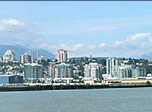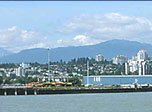Why is Danielle Smith even talking about net-zero?
We hear politicians blithely repeat the
“Net Zero in 2050” mantra. Groupthink is upon us. If one dares to question, one
is labelled a climate denier or even worse shaming epithets.
We need a national leader who will trumpet on the international stage what millions of average taxpayers want to hear — some climate change truth. This emperor has no clothes. Science does not say killing our economy and hurting the prospects of our next generation will alter climate trends.
Much of the discussion over climate policy is based on information generated via mathematical modeling. Obscure are the empirical measurements of climate change, global average temperature, and sea levels. Empirical measurement might not validate modeled projections of climate change.
Meteorological (weather) change is not
climate change. The policy implication of the mismatch between predictive
computer modelling and actual measurement of climate warming is evident.
What’s wrong with “Net-Zero by 2050”?
Net-zero” is the term used when man-made greenhouse-gas emissions are captured either through nature or technology, so they don’t end up in the atmosphere. The identified culprit is CO2 which is a byproduct of burning fuel, most often to generate electricity. There's lots of theory, speculation, projected models, and predictive notions claiming to be science. However, hard science is about measurement and documented observation of real events. Science means ideas are always open for adjustment with verifiable measured evidence.
Sadly, net zero is not supported by the
systematic study of the structure and behaviour of the physical world through
observation, experimentation, and the testing of theories against the measured
evidence. It is political and psychological. It is a policy idea and not a
scientific formula.
Even Alberta Premier Smith, who won the recent election after campaigning on a promise to battle Ottawa's climate policies, is talking net zero.
Smith said Ottawa’s plan for an emissions-free electricity grid by 2035 and a cap on oil and gas sector emissions aren’t realistic for her province without a massive cost to the economy and jobs. She said Alberta was not going to follow the federal Liberal's prescriptions, and that Ottawa must allow Alberta’s slower plan for getting to net zero by 2050.
The problem is the premier still feels
compelled to repeat the unrealistic net zero talk for now, even when she knows
the whole international group-think is ethereal blue-sky politics, rather than
hard science.
Many governments around the world declared climate pledges of “Net-Zero-by-2050.” But net zero is premised on inequitable and unscientific assumptions. Climate enthusiasts claim the world population must consume energy in ways that limit global temperature rise to 1.5 – 2 degrees Celsius. They also understand for their schemes to work, it would require a massive absolute social change in China, India, and the USA. Their plan also involves huge transfers of funds and technology into developing countries to enable them to develop their economies within their prescribed limits. We know this will not happen.
One of the prescriptions is promoting
carbon offsets. However, claiming net zero allows industry to so-called
greenwash their operations. The scheme is to have industrial processes continue
while paying farmers, foresters, and others to offset their emissions through
“trapping carbon” in soil and trees. They then establish markets to trade the
carbon. These transactions and credit systems do not reduce emissions; they
simply re-assign responsibility. Industry continues while claiming to be net
zero by buying offsets. It’s another theory that does not measure in the real
world.
More than a decade of carbon trading has
shown that carbon markets are ineffective at reducing their enemy CO2. This
fantasy has been plagued by fraud and creative accounting. Carbon markets
probably undermine sustainable food systems.
Wind, solar, and tidal power are functional alternatives, but can never match the scale of reliable secure demand for energy that nations need. For example, the experience of the Netherlands which has geography, historical culture, and land use design that most favours wind power, is having a tough time getting their domestic production of wind power up to 15% of their total demand.
Another folly put forward to reach net zero climate targets is to talk about unproven and extraordinarily expensive technologies to remove carbon from the atmosphere. These technologies include carbon capture and storage, bioenergy with carbon capture and storage, and direct air capture.
There are serious questions about the effectiveness of these technologies, especially their ability to work reliably at a large enough scale to make sense. These technologies are not fully tested or currently available at the price and scale needed for any net zero scheme. Some also consider geoengineering which would require extraordinarily perilous interference in the Earth's climate system. The far-fetched idea is to cool the earth by reflecting sunlight into space by seeding the skies.
Again, the bottom line is the NDP socialist idea of making the rich pay for the net zero scheme. The proposers claim the world’s wealthiest countries (the G7) and largest historical carbon emitter the USA must decarbonize while paying for others to do the same. We hear the familiar talk the rich USA must do its fair share of the global effort to limit global temperature rise to 1.5C. The notion is for the G7 nations to cut emissions by 70%, and also pay internationally to enable the equivalent of an additional 125% reduction in developing countries. However, the measured evidence is when “rich pay schemes” are implemented, it's eventually the poor that are proportionally hurt the most. This proposal is not going to happen no matter how hard the political shaming comes from the Liberals and the NDP. Note that the Liberals have never hit a target on anything.
We hear politicians, mostly from the loony
left, without thought repeat nonsense such as "fighting climate
change," "putting a price on pollution,” and becoming a society that
only uses “clean energy.”
The simplistic net zero track for which the Liberals have placed Canada is a term applied to atmospheric carbon emissions, and means if 100 tons of carbon is released into the air, someone else must do something to take away 100 tons of carbon from the air. The only countries that have been decarbonizing their electricity grids are those that can use major hydropower, geothermal, and nuclear power.
There are several reasons why achieving net zero carbon emissions is most unlikely. Citizens in democratic countries will not go along with the coercion, once they realize the severity of new rules. Net zero people just call it a lack of political will. Average sensible people call it something else.
There are real technological limitations to employing “alternative energy generation.” Then there is the cost, the basic economic ability. One of the main challenges is the difficulty of decarbonizing transportation and agriculture, which account for a significant portion of the net zero plan. Additionally, countries may have different priorities, such as peace over war, and secure food supplies. They will be unwilling or unable to make the necessary sacrifices to reduce their carbon contribution.
Finally, even if global net zero emissions are achieved, the climate will continue to change in unpredictable ways beyond human control.
In the recent past, government
pronouncements on climate have been off base and very wrong in the same
direction. Their politics have been biased on the side of predicting too much
imminent warming. In the particular case of Canada’s experts, they predicted an
excessive seven-fold error over actual measurement. They keep overstating the
case for global warming, and they also underestimate the emission control side
of the equation.
Canadian government publications promised more summer heat waves, but the actual data does not support the predictions of longer or more intense summer heat waves; the numbers are available online.
There was the predicted doom of more air pollution, but the numbers show a slight decline as industrial processes improve. Rising sea levels were said to be upon us, but the actual measurements show very little change in annual variability. Falling Prairie crop yields due to drought from climate change were the dire prediction, yet the numbers for Canadian crop yields are increasing. More forest fires were their fear, but the measured long trend is slightly downward and not what the government forecast. Declining St. Lawrence River water levels were the dread. However, there are annual variances but the trend levels are not declining as the government has forecast.
Therefore, the government used very inaccurate modelling to silence critics and shut down civil discussion and debate, claiming all was settled, but their so-called science was hopelessly inaccurate. The government used unreliable materials to intimidate Canadians to support their costly off-track agenda.
See the video of how the government struck out with its grandiose predictions. Canada's 2001 Climate Predictions Revisited - YouTube
So when we hear net zero remember the very shaky platform the assertion stands on.
Despite the claimed political consensus for
the need to address climate change, there is growing skepticism to submit to
drastic measures. Citizens are starting to wake up and fight back and resist
the groupthink of the demands.
The economic consideration is real. The cost of transitioning to a low-carbon economy may be seen as too high. There are other serious national and international priorities.
The technological hurdles are significant. There are technological barriers to reaching net zero, such as the limited availability or high cost of low-carbon technologies at the scale needed to fulfill the net zero wish.
Changing consumer behaviour through a mixed regime of incentives and tax penalties is not going down well amidst the cost crisis of general inflation and basic housing and food costs. Reaching net zero would require significant changes in how we live and work, and there will be resistance by individuals and businesses.
Global cooperation is fundamental to the net zero dream. Since climate change is global, it requires the submissive cooperation of all countries. Small agenda advances in Canada would be swamped by countries that do not cooperate to the prescribed levels, such as China, India, Russia, and the Southeast Asia region. The top country producers of CO2 are said to be China, USA, India, Russia, Japan, and Germany.
Ultimately, the trade-offs between the costs of pursuing net zero compared to other critical needs will depend on the national policies of self-interest and the world marketplace of business, as well as broader social and economic factors.
The net zero path is steep and we are
unlikely to submit to its requirements by mid-century.










No comments:
Post a Comment